This “Limited Edition” Blu-ray from Radiance Films will be available for purchase on August 19th.
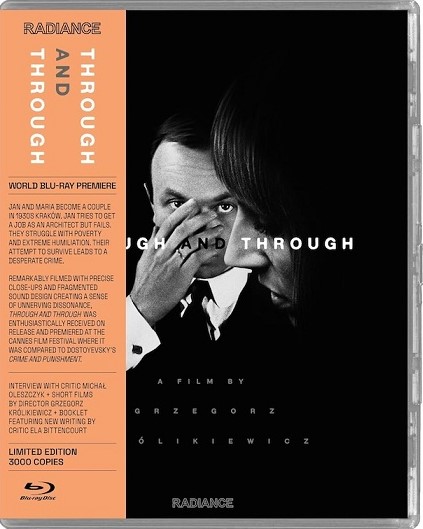
I’ve seen my fair share of Polish films, and one thing I can say about many is that they’re grim affairs. Yes, there are exceptions, like the movies of Juliusz Machulski (and if anyone out there wants to release Blu-rays of Kingsajz aka King Size, or Kiler, it would be most appreciated). But plenty of these features are rough and unforgiving rides. Through and Through aka Na Wylot, definitely fits this mold. It’s a gorgeously shot journey into despair and misery. Yet the movie looks so incredible that it’s worth the gloomy state that it may leave many in.
Radiance Films is now presenting a “Limited Edition” Blu-ray of the film. Cinematographer Bogdan Dziworski has supervised the film’s new 2K restoration, presenting the black and white imagery with inky backgrounds and incredible clarity. The movie looks stunning on this disc, as do the three bonus shorts from the director that are included on the release.
Janusz Malisz (Franciszek Trzeciak) and Maria (Anna Nieborowska) are a married couple struggling to survive in Krakow. Janusz is an artist who can’t hold a job. We see him being fired from a photo studio for his appearance, and is even told that he is talentless after interviewing at an architecture firm. His family not only insults him for his inability to find a steady position, but treats wife Maria with equal disdain. After taking on various jobs to make ends meet, we eventually see them lose all hope. Eventually, they slide into criminal activities, ending up even more out of their depth, and committing murder. The two enjoy one day of living in luxury before being tracked down and put on trial.
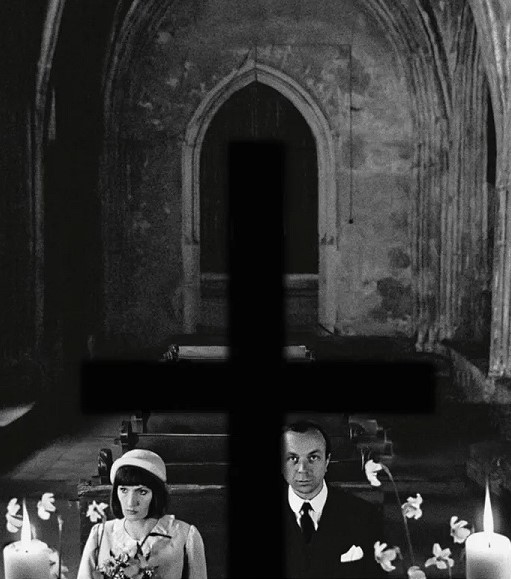
Events are presented in a unique manner. There is something of a naturalistic, documentary feel to the proceedings, though the material is frequently presented using montage techniques. As mentioned, the photography is particularly striking. One example includes a scene in which Janusz tries out a job as a church bell ringer. The camera moves with the bell as it is pulled up and down, while another angle shows the lead being thrown violently and repeatedly into the air, tearing the arms off of his suit. All the while, of course, the priest on site shares his disapproval at the job being done.
There is also a dark static shot of Janusz sitting dejectedly at a park bench, grasping and strangling a bird. He offers the deceased fowl to a less-than-impressed Maria, who offers little in the way of thanks or general encouragement. Additionally, the attack on the old couple is brutal and presented as a messy struggle, with the camera jerking around as the couple awkwardly attempt to strangle and shake the life out of their victims. The shadows are pitch black and there is a consistently oppressive feel to the story.
Even the trial is something of an examination of the main characters (and, perhaps, the system they live under), as they are forced to explain why they did what they did before a judge. Remarkably, they both end up sticking up for each other, arguing that each was solely responsible for the acts. By the end of the self-reflection, it’s pretty clear that they both want to be given the death penalty and escape their existences. But for one of the parties, even that kind of relief will not be granted.
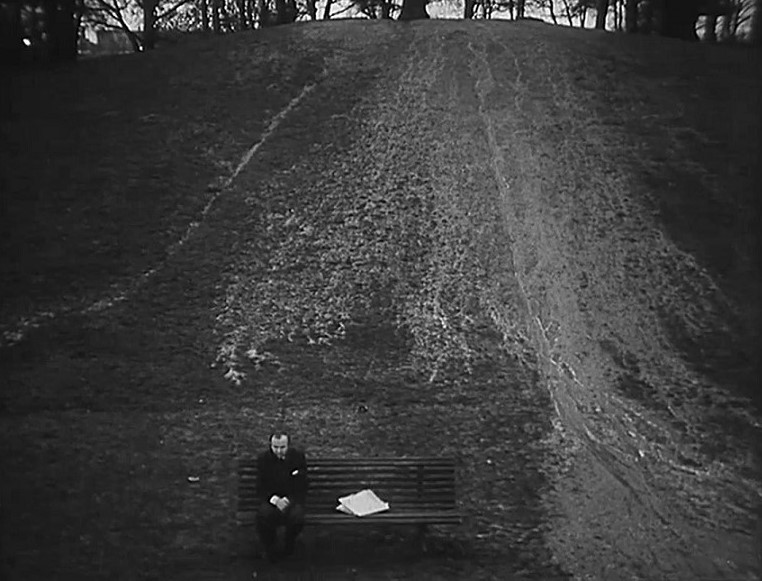
Very little about the picture is positive. There is a brief appearance by legendary actor Jerzy Stuhr (Wodzirej, Sexmission, Blind Chance, King Size, Three Colors: White, Kiler). At least he is energetic, if also blunt and brutal in his delivery, livening up another dark sequence in the film.
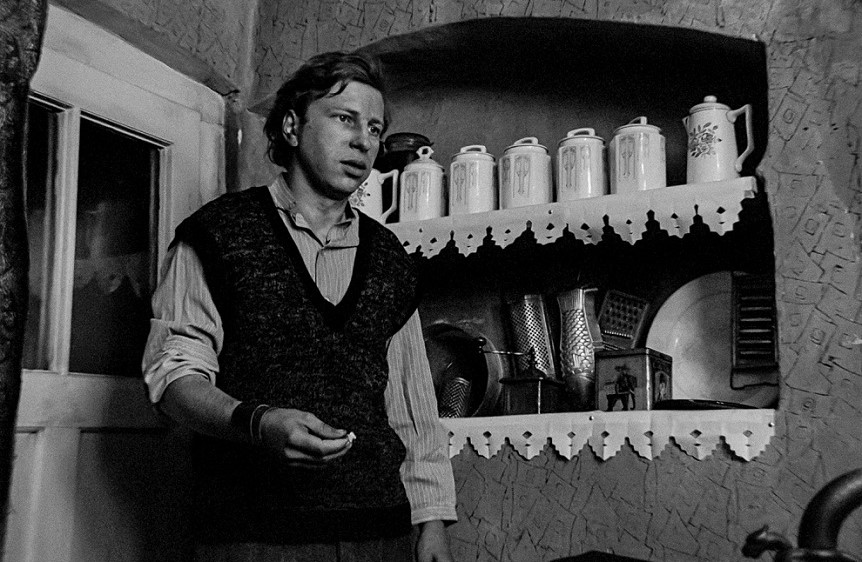
While it’s one of the darkest stories to ever be presented that says plenty about the hardships of life in the country at the time, the wonderful cinematography, creative camera set-ups and surreal tone does allow for a little bit of emotional distance as one is watching all of the horrible events unfold. This reviewer was strangely captivated and was impressed with the feature. If you appreciate gloomy and depressing fare (and I suppose I do), this is an excellent disc and, thanks to the excellent transfer, the movie looks about as memorably bleak and unforgiving as it possibly can.
This isn’t a long movie (it runs about 75 minutes), but you’ll also get some great extras, including an essential discussion of the film and its director, Grzegorz Królikiewicz, from critic Michał Oleszczyk. I’ll admit that everything I wrote about it above was based on first impressions. The speaker notes that the film is a forgotten gem deserving of rediscovery. This tale is actually based on a true story that captivated the nation and that it occurred during a period of severe depression in the country. After their arrest, the public were stunned that the couple wouldn’t turn on each other during the trial and admired their openness and support of each other. The critic also goes into the filmmaker, his unique, impressionistic style and how he developed cinematic language to new heights with his experimental editing and sound techniques. He discusses how the director’s works were treated by both film reviewers and the public during the movie’s initial release (as well as how the government reacted to some of his projects). As you might guess, reaction was extreme from all who saw it. This is an amazingly enlightening talk that fills in gaps most viewers will have regarding this artist.
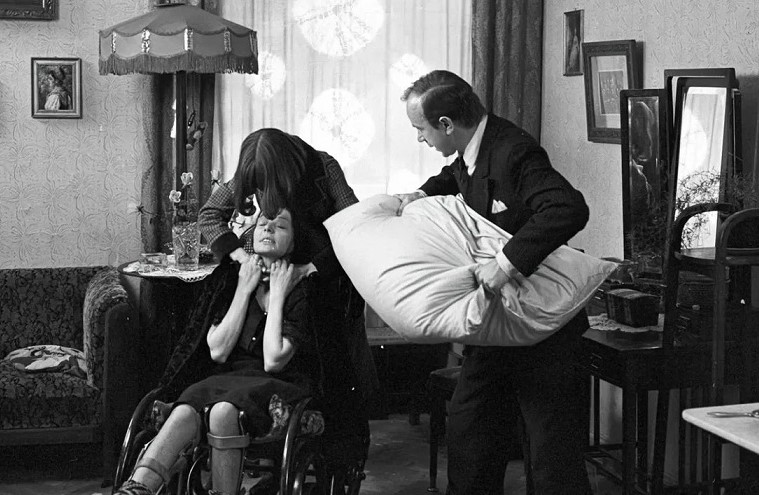
There are three additional shorts from the director that total over 30 minutes. The first, Everyone Gets What They Don’t Need (1966), aka Kazdemu to, Czego mu Wcale Nie Trzeba, involves a news crew investigating the suspicious death of a swimmer. They eventually lose focus on what they’re covering, as the picture asks questions about how these types of situations are covered by the press, and the distance they can create towards those affected.
Brothers (1971) aka Bracia follows two gymnast siblings competing for medal glory, and Don’t Cry (1972) aka Nie Placz follows a group of young Polish citizens celebrating/saying their final goodbyes before hopping on a train to serve in the military. Again, there’s a subtle political message in all of the shorts about how citizens are being treated. As with the feature, they are beautifully shot, with the third short looking particularly striking.
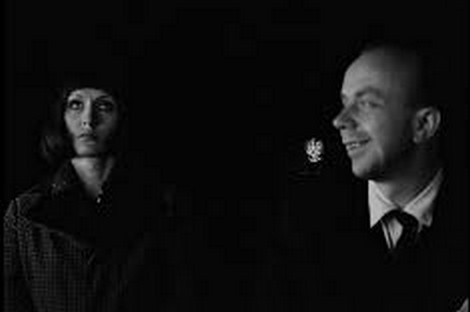
In addition, there is a new interview with a film critic who discusses the film. He talks for nearly 40-minutes and gives incredible background on the title. makes plenty of interesting points, alluding to the
The disc is presented in a reversible sleeve featuring new and original artwork for the picture. A booklet also contains new writing on the movie. And if you’re interested, be sure to hurry, as only 3000 copies of the Blu-ray will be made available.
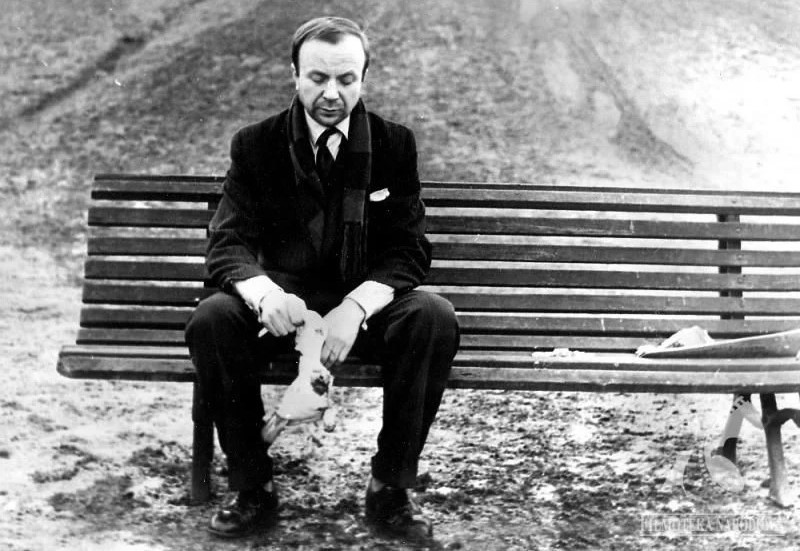
This is a bleak, bleak movie, but one that is staggeringly beautiful to look at. The director of photography has supervised the film’s transfer to Blu-ray, meaning that it looks perfect, and the rare short films and other extras give some insight into the production and work of the filmmaker. Through and Through is another great release from Radiance Films that, for Polish feature enthusiasts and those with a predisposition for heavy material, will certainly appreciate.


